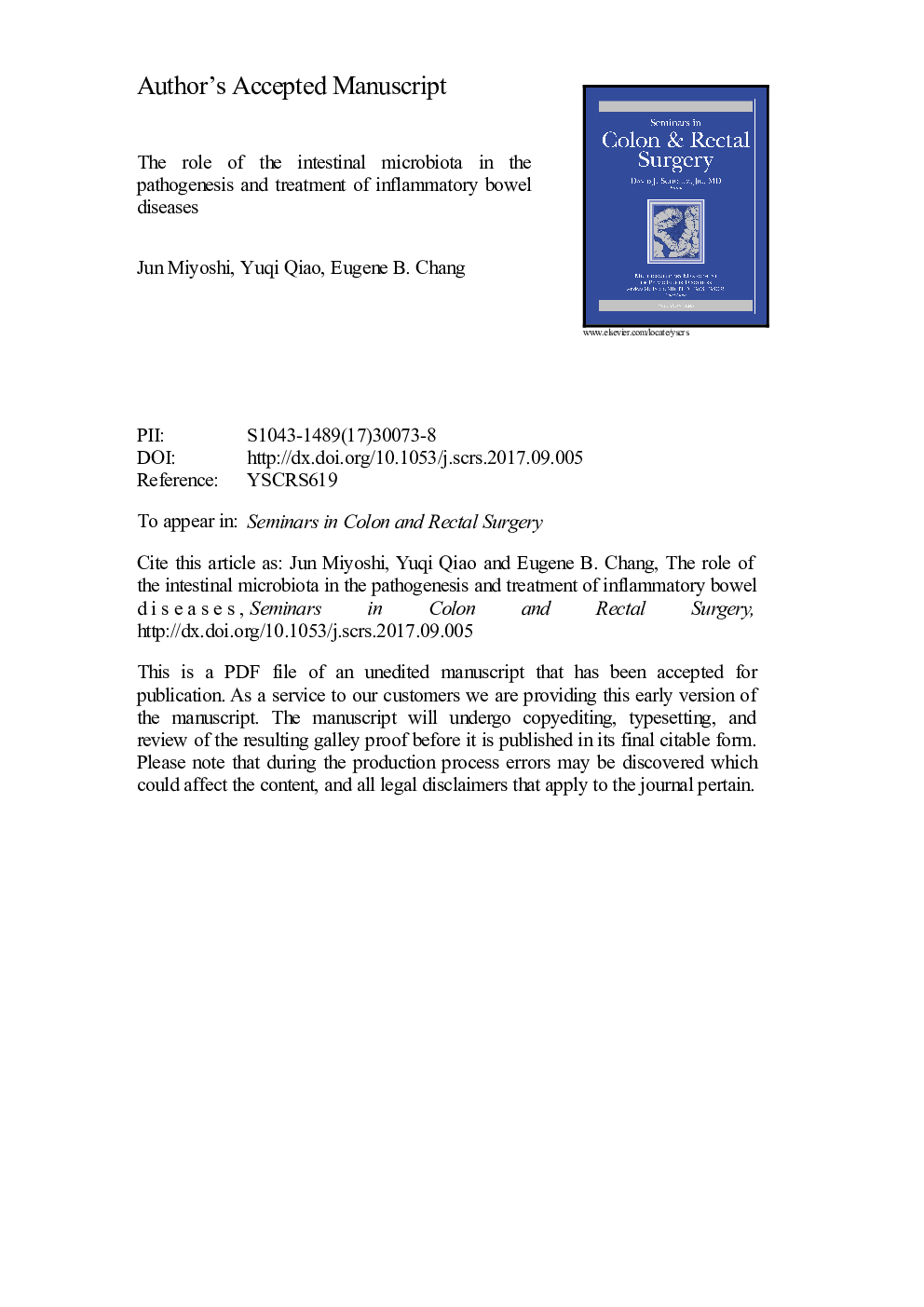| Article ID | Journal | Published Year | Pages | File Type |
|---|---|---|---|---|
| 8731270 | Seminars in Colon and Rectal Surgery | 2018 | 25 Pages |
Abstract
In little over a half century, the incidence and prevalence of inflammatory bowel diseases (IBD) has increased dramatically on a time scale that would be difficult to explain by genetic drift. The impact that IBD has on patients, particularly children and young adults, can be devastating, as there are no cures or preventive therapies. Although some insights have been gained in the conceptual development of IBD pathogenesis, the complexity and interplay of genetic, environmental and microbial factors that converge to trigger and sustain human IBD remain unclear. Over the past decade, cultivation-independent investigations together with gnotobiotic models and advances in bioinformatic analysis platforms have dramatically improved our knowledge of the role of intestinal microbiota in IBD; but further studies are needed to determine the functional and causative effect of intestinal dysbiosis for our understanding of aberrant host-microbe interactions resulting in the development of IBD. These efforts will lead to the establishment of novel microbiota-base therapeutic strategies to achieve the cure and prevention for IBD.
Related Topics
Health Sciences
Medicine and Dentistry
Gastroenterology
Authors
Jun MD, PhD, Yuqi MD, PhD, Eugene B. MD,
